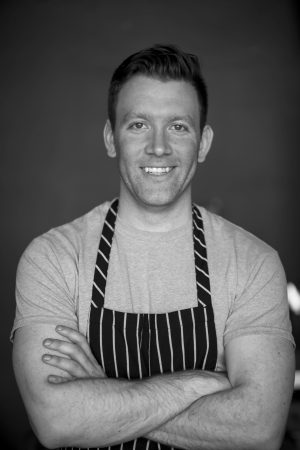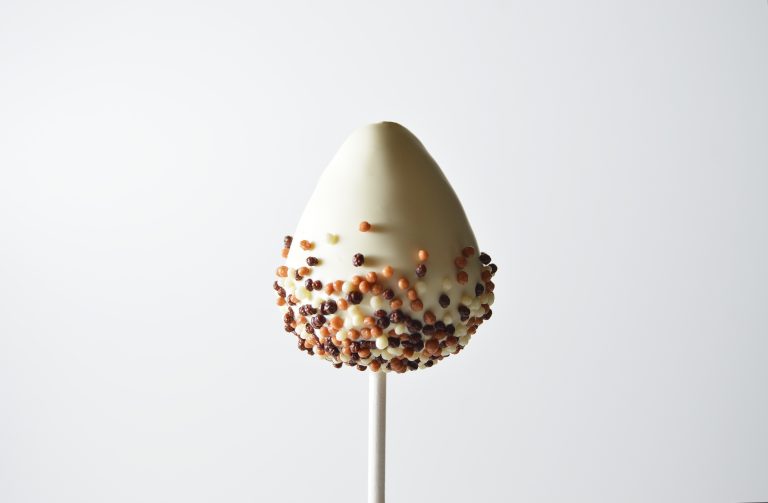Celebrated Chef Scott Green Shares Pastry Wisdom with ICE
Inspiration can happen at any moment. For Scott Green, Executive Pastry Chef at The Langham Hotel Chicago and one of Dessert Professional’s Top Ten Pastry Chefs of 2016, his life-changing moment of inspiration occurred back when he was a student with a scholarship to study fine arts in Chicago, while watching a pastry documentary. Shortly after, he switched from fine arts to pastry arts and never looked back.
As Chef Scott explains, “One moment of inspiration propelled me along a path as a pastry professional that has spanned more than fifteen years and taken me around the world.”  We chatted with Chef Scott about his craft, the next culinary destination and his advice for pastry students.
We chatted with Chef Scott about his craft, the next culinary destination and his advice for pastry students.
You have won many awards for your talent in pastry — which was the most challenging competition for you?
My first team competition, the National Pastry Team Championship in 2011, was probably the most challenging. Although I had other competitions under my belt, this was my first team event and first competition at such a high level. Competitions of that nature demand a completely different set of skills in terms of how you work, how you organize, etc., so getting prepared was a steep learning curve.
Just a few months beforehand, I felt very underprepared, but we really pulled it together as a team (Josh Johnson, Donald Wressell, Della Gossett and myself) and ended up winning first place. Getting through those circumstances was trial by fire and definitely prepared me for future competitions.
Your restaurant Travelle is in Chicago, a city that has risen as a leading destination for food and drink. Which U.S. city do you see as being the “next” Chicago in terms of a culinary destination?
I don’t know that a city can claim that title. So much has changed and is changing about the restaurant industry — how chefs interpret the dining experience, new definitions of eating out like “fine casual” and food trucks, the prohibitive costs of real estate in major U.S. cities, consumers’ expectations — and the list goes on.
It’s changing the fabric of how people eat and eat out at restaurants. There’s also a saturation of restaurants in the major U.S. markets (New York City, Chicago, LA, Miami, San Francisco) and prohibitive costs to keeping those restaurants open. All of this pushes talented chefs and restaurateurs into “undiscovered” locations like Portland, Atlanta, Charlotte, Nashville, Cleveland…just a few cities that have developed sophisticated and diverse food cultures within recent years.
I suspect that the current restaurant capitals of the U.S. will maintain their status as dining destinations (including Chicago), but soon you’ll be able to go to the airport in, say, Buffalo, and still find great food.
How have advancements in technology changed your craft over the years?
Technology is a double-edged sword. On the one hand, chefs can now express greater and more complex creative and artistic visions thanks to technology like 3D printing, molds, advanced stabilizers, ingredients and crossover technology like immersion circulators and rotovap [rotary evaporator]. From a purely artistic standpoint, technology has expanded the boundaries of what is possible and I love that. However, this is not a purely artistic profession. What is most important and what I feel is becoming lost in the buzz and noise of so much technology available to us (including the rise of social media) is the fact that our responsibility as chefs is first and foremost to create food that tastes good. This has always been a profession of skilled technicians and there’s a fine line when technology replaces that skill. Is it really so impressive to envision a cake and then have a machine 3D print a model, hire someone else to make a perfect mold of the shape a machine made and then simply fill that mold with mousse and cake? Is it so amazing to coat a cake in mirror-like glaze if that glaze doesn’t taste good? To me the answer is no. I’m not impressed by that at all — but millions of Instagram users are; so the trends persist. While I embrace technology and all that it offers in the realm of creative expression, it has to be tempered with the foundation of our craft and a constant alignment with what is most important: form follows function. [caption id="attachment_22760" align="alignleft" width="5936"]

Do you think it is important for pastry students to have a background in savory/culinary studies?
I think any and all education is a good thing. Knowledge truly is power. You never know how a certain set of skills or knowhow can be applied to your career or your work. So while I don’t think it’s necessary for pastry students to have a savory background (I have no formal savory education), I also don’t think it’s a bad thing.
What is one piece of general advice you would give pastry students?
This is easy: Leave your ego and sense of entitlement at the door. I repeat: Leave your ego and sense of entitlement at the door. Get rid of it altogether because it will do nothing to help you succeed in your career. Do what you are told every day, as well as you can, as fast as you can, as clean as you can, and be open to critique and feedback until the day you are told to do something else.
This is called work ethic. There’s no timeline that entitles you to a raise or promotion or new set of tasks — that’s just not how our profession works. Keep your head down and work hard. The success will come in time to those who are truly willing to sacrifice in order to achieve it.
Click here to check out our upcoming advanced pastry courses at ICE.

